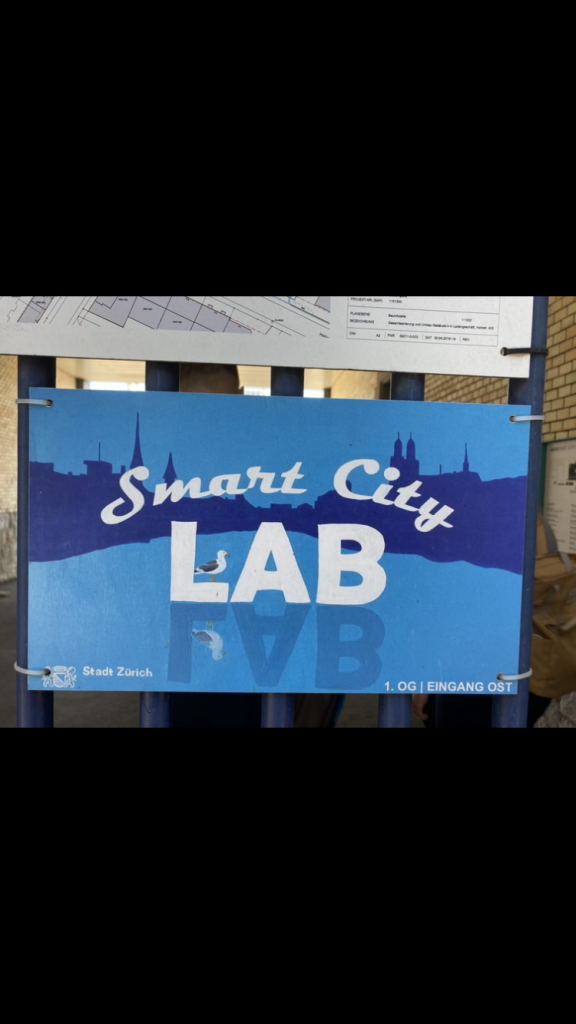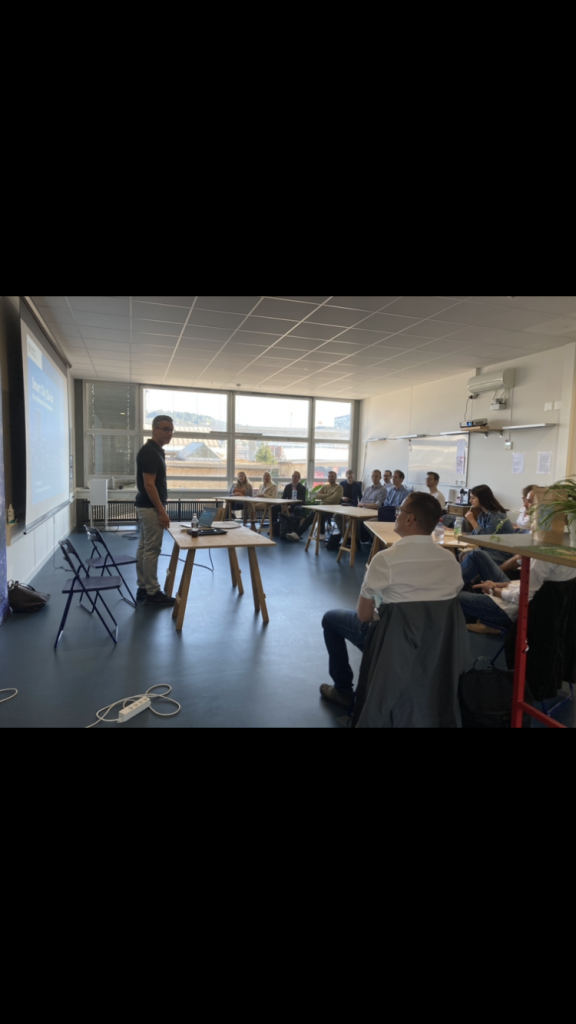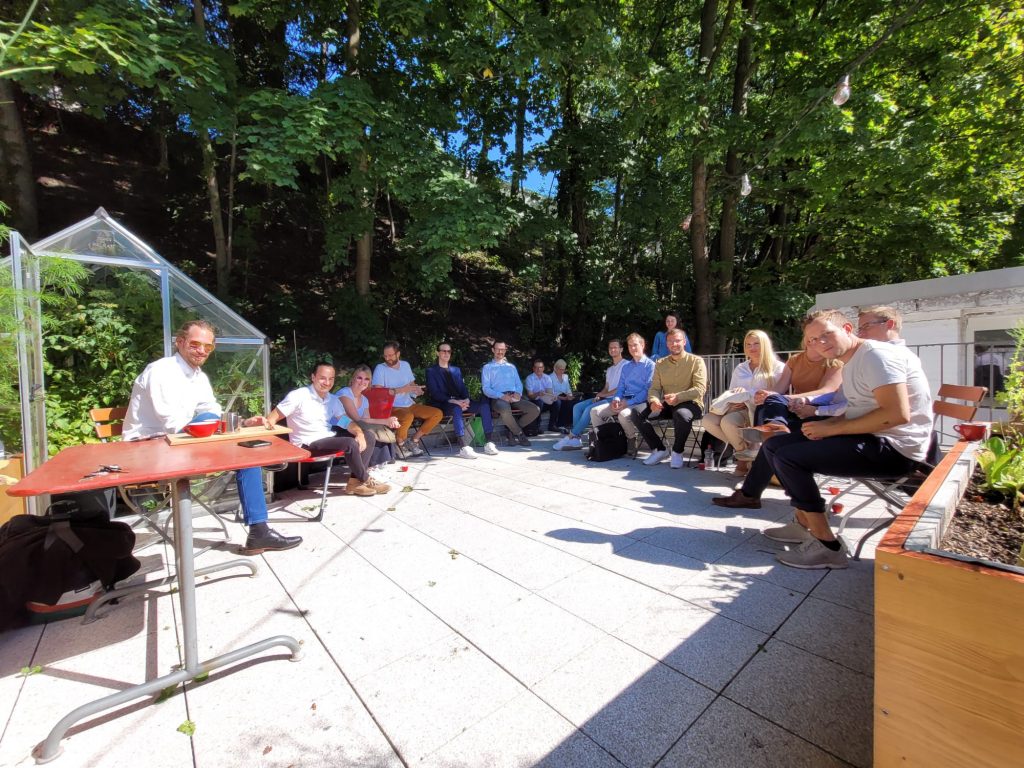Today, after one year of home studying, the class PNP HS20 has gathered for their study trip. First stage in the morning was in Zurich to visit the Smart City Lab of the Stadt Zürich. This innovation hub is mainly focused on finding solutions for creating an innovative ecosystem within cities.
Topics discussed are the future of cities, reduction in motorized mobility and social diversity. Hence our presentator, David Weber, Head of Smart City Zurich, emphasised their importance to urban social life where the citizen is in the main scope instead of architectonic and digital aspects.
Projects in current scope are: 1) Pikmi- on demand öV, 2) Micromobilityplatforms and 3) Züri Mobility. These mobility focused projects aim to increase to use of big data, on a transparent manner, to research better conclusions of current offerings and to support innovation projects drafted from citizen and entrepreneurs.
Futhermore, the Lab has launched a project to laserscan top- and sub-terrain structures to strenghten the efficiency of the urban building department among many more.
On the bottom line, the Smart City Lab is striving to set a standard for other departments within the “Stadtverwaltung Zürich” and to source innovation by providing a supporting platfrom for entrepreneurs and innovators from various backgrounds. We have to come to know this hub as a leader in contributing into our future, to enable development and to provide strategies to further enhance life and long-term development within the city of Zurich.
After lunch, our group met at Lessingstrasse in Zurich to visit the “Dezentrum”, a think-tank founded in 2017 that focuses on the impact of digitalization in society.
On the roof-top terrace behind the office, Flurin Hess gave us a detailed insight into the work of the team of about twelve, which is made up of digitalization experts with diverse professional backgrounds. In doing so he pointed out that the group diverts from formal hierarchies and instead places a high value on transparency and expertise when making important decisions.
He began by explaining the idea and intention behind the founding of the company and the various topics that the Dezentrum deals with: 1) Decentralization, 2) Future of Work / Work of the Future, 3) Digital Participation, 4) Digital Literacy.
Using concrete example projects, he then explained their special approach to the implementation of projects from the acquisition of knowledge to the elaboration of scenarios about a possible future to the testing of these considerations through prototypes and experiments.
He underlined that the Dezentrum intends to contribute in a positive way on how digitalization will eventually have an impact on civil society.
After a tour of the office, the first day of our study trip ended with a debriefing by Alexander Mertens and Pascal Horni.


